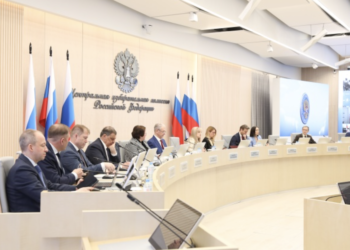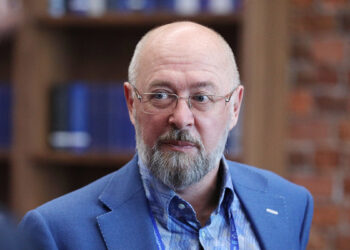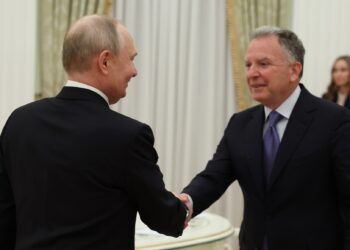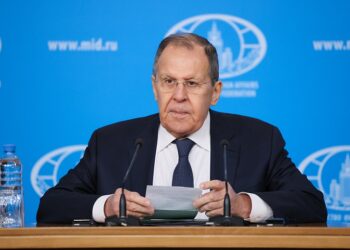MOSCOW (Realist English). Ahead of his official visit to China, Russian President Vladimir Putin outlined an expansive agenda to deepen political, economic and cultural ties, praising Chinese President Xi Jinping as a “true leader of a major world power” and signaling closer alignment on global security, trade and historical memory.
In a written interview to China’s Xinhua news agency published on August 30, Putin said he would travel to Tianjin for the Shanghai Cooperation Organisation (SCO) leaders’ summit and then hold bilateral talks in Beijing. He expects the SCO meeting—hosted under China’s rotating chairmanship—to “add powerful momentum” to the bloc’s capacity to respond to contemporary threats and to advance what he called a “fairer, multipolar order.”
On the bilateral track, Putin said talks in Beijing would span security and foreign-policy coordination, energy and industrial co-operation, and cultural and educational exchanges. He tied the visit to commemorations this year of the 80th anniversary of victory in the Second World War, vowing to honor Soviet and Chinese soldiers and to resist “any attempts to distort the truth of WWII.”
Economy and energy
Putin said Russia-China economic relations are at “an unprecedented level,” noting that since 2021 merchandise trade has expanded by roughly $100 billion and that settlements have “almost entirely” shifted into national currencies, with the dollar and euro “down to statistical error.” Russia remains China’s top supplier of oil and gas, he added, citing more than 100 bcm delivered via the Power of Siberia pipeline since 2019 and plans to commission an additional Far Eastern gas route in 2027. He highlighted cooperation on Arctic LNG projects, expanded Russian food exports (including pork and beef), and rising two-way investment under a newly updated investment cooperation plan and a fresh bilateral investment protection agreement.
Industrial ties are broadening beyond auto exports from China to localized production of vehicles and home appliances in Russia, as well as joint construction of “high-tech industrial and infrastructure facilities,” he said.
Culture, education and people-to-people links
The two sides are executing a humanitarian “roadmap” through 2030 comprising more than 100 projects, including the 2024–2025 cross-Years of Culture timed to the 75th anniversary of diplomatic relations. Student flows remain sizable—over 51,000 Chinese study in Russia and 21,000 Russians in China—while both governments agreed to hold cross-Years of Education in 2026–2027. Putin also pointed to joint science initiatives (a planned fundamental-research institute by Moscow State University and Peking University), film co-production (the feature “Red Silk” and a new action plan), strong tourism rebound (2.8 million two-way trips in 2024), and sports cooperation at events such as the BRICS Games and Russia’s “Games of the Future.”
Shared historical narrative
Framing historical memory as contemporary statecraft, Putin lauded China’s role in defeating militarist Japan and condemned efforts in parts of the West to “revise the outcomes of WWII,” including desecration of Soviet memorials and the “rehabilitation” of collaborators. He said Moscow and Beijing “resolutely oppose” such trends and view the UN Charter’s post-war settlement as inviolable.
Multilateral alignment
Putin described Russia-China cooperation at the UN, G20, APEC, SCO and BRICS as a stabilizing force representing the “world’s majority.” He backed UN reform to better reflect Asia, Africa and Latin America in the Security Council; greater BRICS weight in development and finance; and changes to the IMF and World Bank for “openness and genuine fairness,” while resisting sanctions-driven trade discrimination. He linked Russia’s proposal for an indivisible Eurasian security architecture to Xi’s Global Security Initiative and said both sides will push climate, artificial-intelligence governance and broader global-security reforms toward “democratic” and multipolar outcomes.
“With China’s chairmanship of the SCO and our own chairmanship in the SCO Council of Heads of Government, we aim to synchronize practical steps and give the organization a qualitatively new dynamic,” he said, adding that the visit would set “new, mutually beneficial” projects in motion for both nations.


















